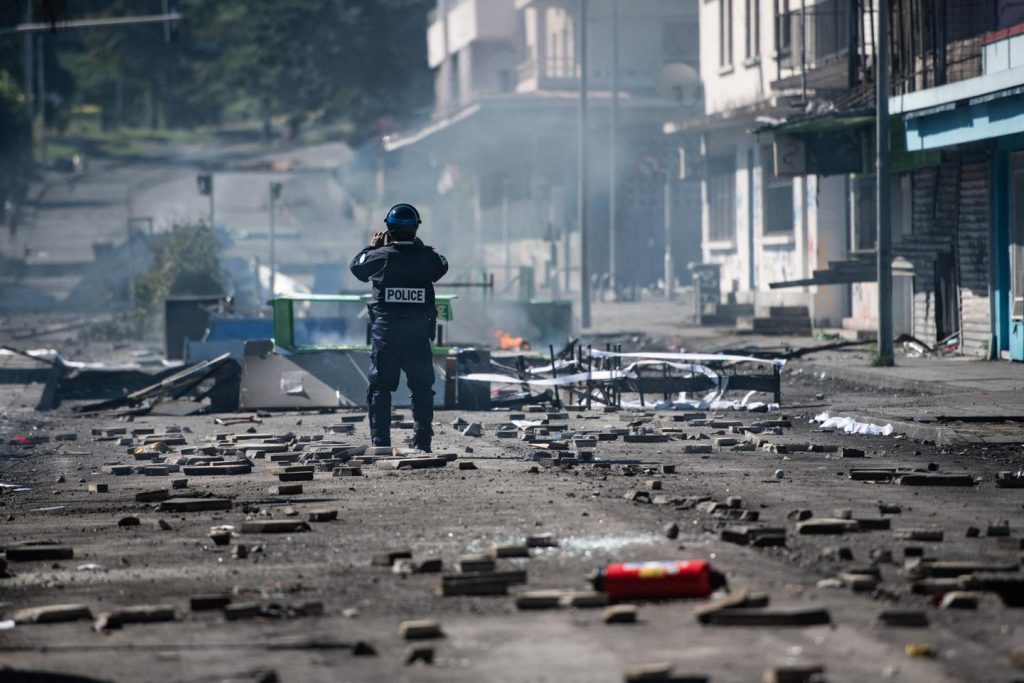The Criminal Chamber of the Court of Cassation was seized on Friday, October 25th, with a request to relocate the investigation into the riots in New Caledonia, announced by the Prosecutor General Rémy Heitz. This relocation is requested by the independence activists but is being refused by the justice system in Noumea. The Prosecutor General near the Court of Cassation announced in a statement that due to the importance of the issues, the Criminal Chamber will have to debate on the appropriateness of such relocation in the interest of the administration of justice. An audience in front of this chamber can only be held after a period allowed for the parties to make their observations, at least a month after the decision to refer the case to the Criminal Chamber has been communicated to all parties.
From May 13th, New Caledonia has experienced violence of unprecedented scale since the near-civil war of the 1980s, related to electoral reform. Thirteen people, including two gendarmes, were killed, hundreds were injured, and the cost of material damage is estimated to be at least 2.2 billion euros. As a result of these events, an investigation has been opened by the public prosecutor’s office in Noumea for complicity in attempted murders, association of wrongdoers, participation in a group aimed at preparing violence against people or destruction of property, armed theft, and destruction using dangerous means, committed between May 12th and June 19th. Thirteen independence activists belonging to the Coordination Unit of Field Actions (CCAT) have been indicted in this case, where eight of them have requested the relocation of the legal information they are involved in, citing repeated violations of the presumption of innocence.
The public prosecutor of the Noumea Court of Appeal dismissed these accusations of partiality, questioning whether the CCAT is a criminal organization in part or in whole. A recourse against the decision taken by the prosecutor general of Noumea on September 11, 2024, was sent on October 7 to the Prosecutor General near the Court of Cassation. Two independence activists, Christian Tein and Steve Unë, suspected of playing a role in the violence, had their detention in France invalidated by the Court of Cassation on Tuesday. A new court decision will have to be made regarding their detention location. Three other Kanak militants who also contested their detention in mainland France had their appeal rejected.
The situation in New Caledonia has highlighted questions about the exceptional justice system for independence activists. The actions of the CCAT and the legal proceedings against the activists have sparked debates over fairness and impartiality within the justice system. The involvement of the Court of Cassation in reviewing decisions and considering the relocation of the investigation reflects the complexity and sensitivity of the situation in New Caledonia. The trial of the indicted militants and the legal process will continue to be closely monitored, and the outcome of these proceedings will be crucial in determining the future direction of justice in the region.
The violence and unrest in New Caledonia have had significant impacts on the population and the economy of the region. The deaths, injuries, and material damage caused by the riots have raised concerns about the stability and security of the territory. The involvement of independence activists in the events has further fueled tensions and disputes within the community. The legal proceedings and investigations into the violence will be a key factor in addressing the underlying issues and addressing the grievances of the different factions in New Caledonia. The decision of the Court of Cassation and the Criminal Chamber will be instrumental in determining the path forward for justice and reconciliation in the region.















